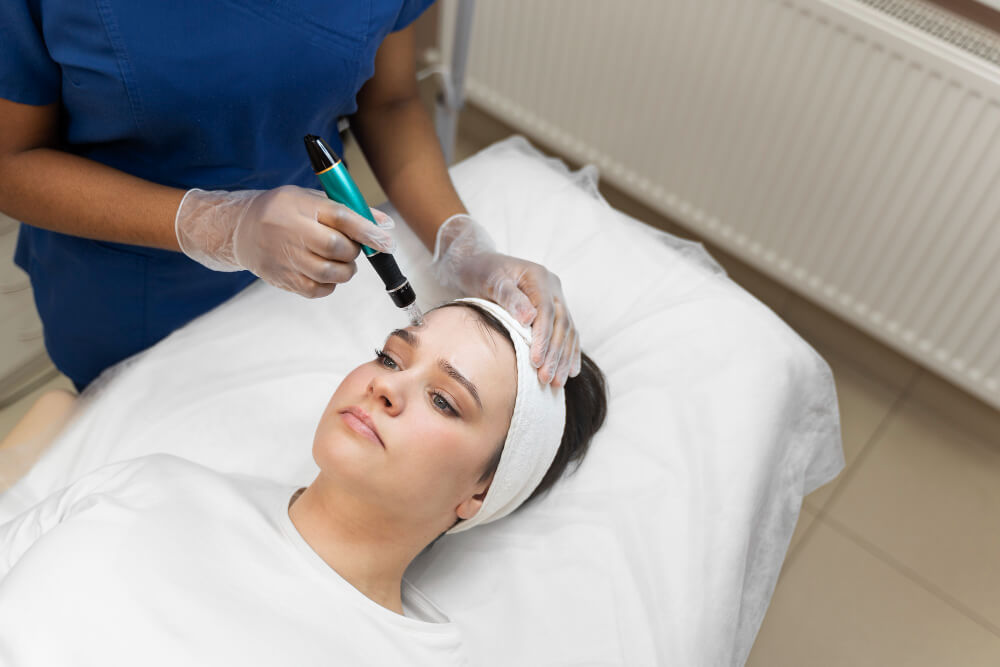Unveiling Your Best Skin: A Guide to Skin Tones, Texture, and Personalized Treatments
Your skin is your body’s largest organ, and it deserves the best care possible. But navigating the world of skincare can be overwhelming, especially when it comes to understanding your unique skin tone and texture. This comprehensive guide will empower you to embrace your natural beauty by delving into the fascinating world of skin tones, exploring the science behind texture, and unveiling a range of treatment options tailored to your specific needs.
Understanding the Spectrum of Skin Tones
Skin tone refers to the natural color of your skin, determined by melanin production. Melanin is a pigment that protects your skin from harmful UV rays. The amount of melanin you produce dictates your skin tone, ranging from fair to deep. Here’s a breakdown of the Fitzpatrick Skin Type classification system, commonly used in dermatology:
- Type I (Very Fair): Prone to sunburn, with little to no melanin production.
- Type II (Fair): Burns easily, tans minimally.
- Type III (Light): Burns moderately, tans gradually.
- Type IV (Medium): Burns minimally, tans easily.
- Type V (Dark Brown): Rarely burns, tans deeply.
- Type VI (Deeply Pigmented): Almost never burns, tans very deeply.
It’s important to remember that skin tone goes beyond these categories. There’s a beautiful spectrum of skin tones within each type, and undertones (the color beneath the surface) also play a role in your overall complexion. Understanding your skin tone is crucial for choosing the right foundation shades, sun protection, and even some targeted treatments.
Here are some common skin texture concerns:
- Dry Skin: Feels rough and flaky, with visible fine lines.
- Oily Skin: Appears shiny, with enlarged pores and prone to breakouts.
- Combination Skin: A mix of oily and dry areas.
- Uneven Skin Tone: Hyperpigmentation (dark spots) and hypopigmentation (lighter patches) can create an uneven appearance.
- Large Pores: Can make skin appear rough and uneven.
- Scars: Acne scars, surgical scars, or stretch marks can affect texture.
By identifying your specific skin texture concerns, you can choose the right products and treatments to achieve a smoother, more radiant complexion.
Exploring Infusion Treatments
The quest for flawless skin is a universal one. While understanding your unique skin tone and texture is crucial, achieving a radiant complexion often requires going beyond traditional skincare routines. This comprehensive guide delves into the world of infusion treatments, exploring how they can address concerns like uneven tone, rough texture, and loss of luminosity.
Beyond Moisturizing: Unveiling the Power of Infusions
Unlike traditional moisturizers that sit on the surface of the skin, infusion treatments deliver a potent cocktail of beneficial ingredients directly into the deeper layers. This is achieved using various methods, each offering distinct advantages:
- Microneedling: Tiny needles create micro-channels in the skin, allowing for deeper product penetration and stimulating collagen production.
- Hydrofacial: A combination of exfoliation, hydration, and serum infusion helps achieve a smoother, brighter complexion.
- Sonophoresis: Sound waves gently push serums deeper into the skin, boosting product absorption and effectiveness.
- Electroporation: Electrical pulses create temporary pores in the skin, allowing for deeper delivery of active ingredients.
Unveiling the Infusion Arsenal: Ingredients for Targeted Solutions
Infusion treatments can be customized with various ingredients to address specific concerns. Here are some key players:
For Uneven Skin Tone:
- Vitamin C: A potent antioxidant that brightens skin tone and fades hyperpigmentation.
- Kojic Acid: A naturally derived ingredient that helps lighten dark spots and even out skin tone.
- Tranexamic Acid: Reduces the appearance of hyperpigmentation by inhibiting melanin production.
For Improved Texture:
- Hyaluronic Acid: A humectant that attracts and retains moisture, plumping the skin and minimizing fine lines.
- Peptides: Stimulate collagen production and promote cellular repair, leading to a smoother, firmer texture.
- Salicylic Acid: A beta hydroxy acid (BHA) that exfoliates clogged pores and reduces roughness.
For Enhanced Radiance:
- Antioxidants: Combat free radical damage, helping to prevent premature aging and promote a healthy glow.
- Niacinamide: Strengthens the skin barrier and improves overall texture, resulting in a more radiant appearance.
- Growth Factors: Signal skin cells to regenerate and repair, promoting a youthful, healthy glow.
Choosing the Right Infusion Treatment
With the diverse range of infusion treatments available, consulting a dermatologist is crucial. They can assess your individual needs and recommend the most suitable treatment and ingredient combination. Factors to consider include:
- Your skin tone and texture concerns.
- Desired results (e.g., brightening, tightening, hydration).
- Overall skin health and sensitivity.
- Medical history and any allergies.
Embracing Realistic Expectations
Infusion treatments offer powerful benefits, but it’s important to set realistic expectations. While some treatments provide noticeable results after one session, others may require a series of sessions for optimal effects. Additionally, proper post-treatment care, including sun protection and consistent skincare, is vital to maintain results.
Unveiling the Benefits: Why Choose Infusion Treatments?
Here’s a glimpse into the advantages infusion treatments offer:
- Targeted Delivery: Delivers concentrated ingredients directly to the areas of concern, maximizing their effectiveness.
- Enhanced Absorption: Infusions bypass the skin’s surface barrier, leading to deeper and more impactful results.
- Customizable Solutions: Tailored approaches address specific tone and texture concerns for personalized results.
- Improved Efficacy: Compared to topical products, infusions offer a more potent boost to skin health.
- Reduced Downtime: Many infusion treatments are minimally invasive and require minimal downtime for recovery.
Beyond Infusions: A Holistic Approach to Radiant Skin
While infusion treatments can be transformative, achieving and maintaining a radiant complexion requires a holistic approach. Here are some essential practices to complement your infusions:
- Healthy Diet
- Consistent Skincare Routine: Cleanse, moisturize, and apply sunscreen daily with products suited to your skin type.


